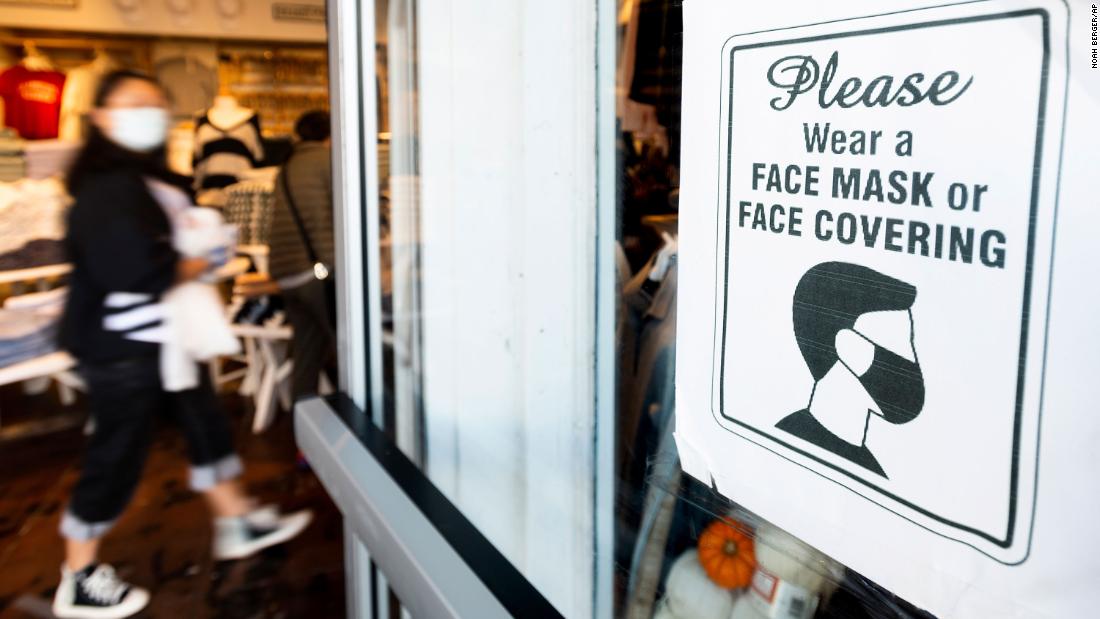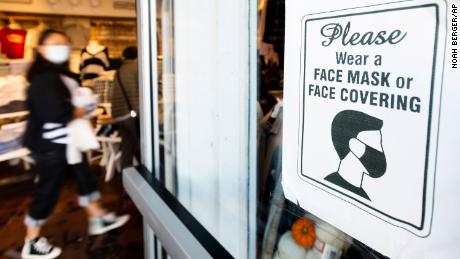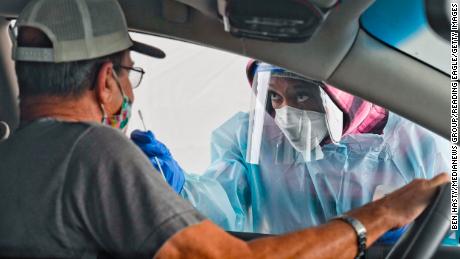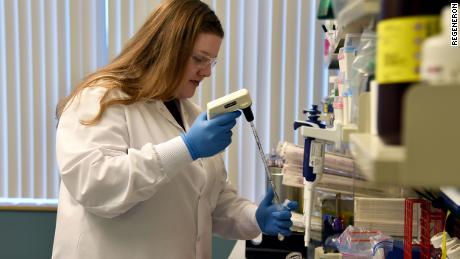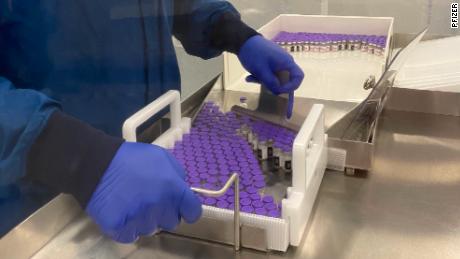Experts warn that spikes in cases and deaths could get worse before they get better. And for many statistics, they are already the worst they have been so far.
At least 83,227 Covid-19 patients were hospitalized Saturday, according to the Covid Tracking Project. That’s the 12th straight day that the US has broken its record for Covid-19 hospitalizations.
And health experts say new infections, hospitalizations and deaths will get worse before they get better, as the upcoming holidays and colder weather trigger more indoor socializing.
Testing has increased, but not nearly at the same pace as new infections have increased. As of Friday, the number of daily new cases over the past week was 25% higher than the previous week, according to Johns Hopkins.
By contrast, the number of new tests increased only 14.55%, according to the Covid Tracking Project.
Saturday marked the country’s 19th straight day of more than 100,000 new cases reported, according to Johns Hopkins.
And more new infections mean more new hospitalizations and deaths in the weeks ahead.
Why infections might be higher than we know
The real case count is likely to be “multitudes” higher than the 12 million reported because not enough people are getting tested, said Dr. Esther Choo, professor of emergency medicine at Oregon Health & Science University.
Choo said she’s especially concerned by how quickly new cases are accelerating.
“So many states have test positivity rates above 20%, which means that we are vastly lagging behind in our confirmed cases,” she said.
Of the remaining 44 states, several had test positivity rates of more than 40%: Wyoming, South Dakota, Iowa and Idaho.
The CDC urges Americans to stay home this Thanksgiving
With this unprecedented surge of Covid-19, the US Centers for Disease Control and Prevention warned against Thanksgiving travel and against celebrating with anyone outside your own household.
The safest way to enjoy a holiday meal with friends and family outside your household is to strictly quarantine for 14 days beforehand.
“If you do that properly, you don’t need a test,” said Dr. Rochelle Walensky, chief of the infectious diseases division at Massachusetts General Hospital.
Americans can now get Trump’s antibody treatment
It is one of the treatments President Donald Trump received when he was hospitalized.
“What we know is the sooner you receive this treatment, the better it is — for example, like (when) the president received it,” said Dr. Carlos del Rio, executive associate dean at Emory University School of Medicine.
“The reality is if you are over 65, if you have comorbid conditions like diabetes, obesity, or some other immunosuppression, and you get diagnosed with Covid-19, you should be considered for this therapy pretty much immediately. The sooner — within the first three to four days of getting diagnosed — is the best time to receive it,” del RIo said.
“The challenge, of course, is finding it, because it’s actually a limited supply.”
Vaccines are months away for most people
There’s more good news on the vaccine front.
The application came after early data showed the Pfizer/BioNTech vaccine was 95% effective, even in older adults, and caused no serious safety concerns.
While the application is “encouraging,” the Infectious Diseases Society of America stressed that a transparent review of Pfizer’s data is still needed.
“Measures that include wearing masks, frequent hand washing, maintaining physical distance and restricting the size of gatherings will remain crucial,” the Infectious Diseases Society of America said.
CNN’s Chuck Johnston, Christina Maxouris, Hollie Silverman, Claudia Dominguez, Jamie Gumbrecht, Jacqueline Howard and Lauren Mascarenhas contributed to this report.
![]()


